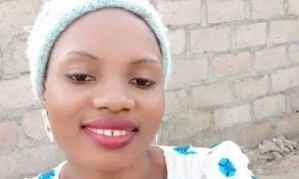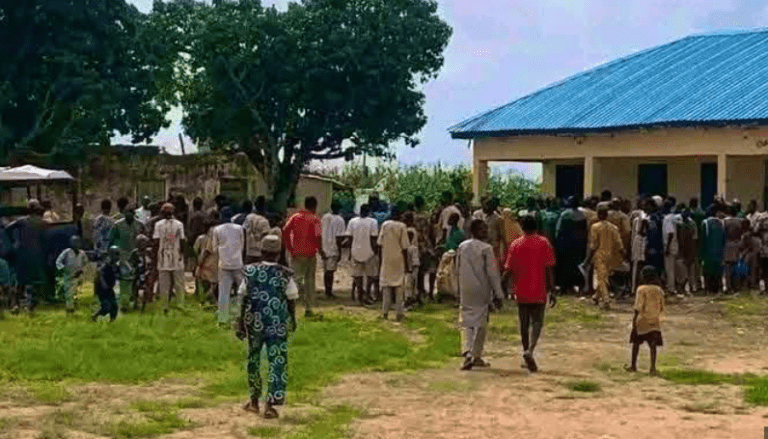A food vendor in northern Nigeria was killed on Saturday (August 30) by a mob who accused him of being a blasphemous ASP against Prophet Muhammad. The casual conversation between nephew who jokingly proposed to marry a woman has turned into another lynching by the masses, based on the basis of the blasphemous Asp.
The reaction of the Muslim woman identified only as Ammei was not clear, but the mob saw it as blasphemous enough to justify the lynching despite the Nigerian Supreme Court ruling that the profanity allegations must be proven in court.
Sources say the district chief tried to hand her over to police for an investigation, but the upset crowd overwhelmed them and burned her to death. Police confirmed the incident and said she was “flamed before the security team was strengthened.” Local officials reported that they had “settled and recovered to the area,” but critics like human rights activist Aisha Yeshu denounced this as an inadequate response to the take-up of human life.
Amaye’s brutal murder is not an isolated incident, but a recurring pattern of mob violence in northern Nigeria, and profanity accusations often bypass the formal legal process in favor of vigilante justice. The practice is particularly prevalent in 12 northern provinces operating under Sharia (Islamic law) along with secular law, the BBC says. These accusations disproportionately target religious minorities, especially Christians, leading to mob attacks, destruction of property and forced evacuation.
Amnesty International’s 2024 report revealed that at least 91 people were victims of mob behavior against religious pretexts between 2017 and 2024, most were members of Christian or other religious minority groups. Human rights groups have condemned the lynching and urged Nigerian authorities to “instantly and transparently investigate Amue’s death.”
“Amei’s lynching following the interaction with the young man is deplorable and authorities must ensure that the person responsible for her death is immediately arrested and brought to trial.

One of the most widely known cases is that of Deborah Samuel Yakub, a student at the Christian University of Sokoto. In May 2022, she was stoned and burned by a mob of Muslim students after being accused of a blasphemous asp in WhatsApp group. The two suspects were arrested, but were charged with relatively minor crimes and later acquitted for a “no-show of a prosecutor’s lawyer.”
Christian healthcare worker Rhoda Jatau was arrested and detained in May 2022 at the Bauch for over 18 months without trial after condemning Deborah’s murder.
Hausa Christian lecturer Sadiq Mani Abubakar torched his home and vehicle in January in a Facebook post that raised questions about the Quran. He feels “absorbed entirely by the Christian Association of Nigeria (can)” and faces a federal salary suspension after fleeing for his life. Other victims include Gideon Akaruka, who was lynched and beheaded in the police cell in Kano in 1994, and a Christian trader who lived in Niger in 2016. Muslims are frequently victims of the fall victim to victim, such as Usman Buda in Sokoto (2023) and a 50-year-old man in Kano (2008).
The Nigerian constitution expressly guarantees freedom of religion and expression. However, the implementation of Sharia in the Northern Provinces often creates parallel legal systems that are directly opposed to these fundamental rights. International Christian concerns suggest that law enforcement agencies often cultivate a “culture of immunity” and “reluctant to intervene in cases of mob violence” due to fears of rebellion and lack of political will.
In April, the ECOWAS Community Judicial Court issued a landmark ruling, declaring certain blasphemous ASP provisions in the Criminal Code of Kano State and Sharia Criminal Code (2000), and is incompatible with international human rights standards, particularly the right to freedom of expression. The court has required Nigeria to abolish or amend these and similar laws to match them with their international obligations.
